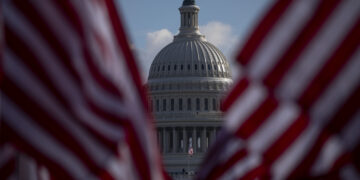January 27, 2021
U.S. arms sales should not promote Saudi and Emirati recklessness
FOR IMMEDIATE RELEASE:
January 27, 2021
Contact: press@defensepriorities.org
WASHINGTON, DC—Today, The Wall Street Journal reported the Biden administration has imposed a temporary freeze on all U.S. arms sales to Saudi Arabia and the United Arab Emirates. Defense Priorities Policy Director Benjamin H. Friedman issued the following statement in response:
“The freeze in arms sales to Saudi Arabia and the UAE is a good first step in recalibrating U.S. policy toward those states. Hopefully it also augurs a more distant and neutral U.S. policy in the Middle East, one where U.S. power ceases to enable Saudi and Emirati recklessness.
“Under a misguided policy begun under President Obama and continued under President Trump, despite congressional votes to stop it, U.S. arms and intelligence aided Saudi and UAE involvement in Yemen’s civil war, exacerbating the humanitarian disaster there. By fully removing its support, including arms sales used for airstrikes, the U.S. can pressure the Saudis and their Yemeni allies to offer terms to Houthis that ends the war.
“The U.S. should stop pretending the Saudis and the Emiratis are U.S. allies. Handling them with kid gloves and backing their aggressive polices—toward Yemen, Qatar, and Iran—has been locally destabilizing and contrary to U.S. interests. We should not treat them as enemies or permanently refuse to sell them any weapons system (air and missile defense components for example), but underwriting their misdeeds should stop. A balance of regional powers is best for U.S. interests—taking sides and intervening on behalf of the Gulf States is a proven failure.”
Author

Benjamin
Friedman
Policy Director
More on Middle East

December 28, 2024
Events on Middle East







